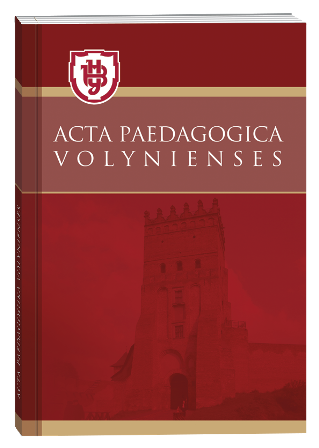METHODOLOGICAL RECOMMENDATIONS FOR THE IMPLEMENTATION OF GAMIFICATION TECHNOLOGY IN DISTANCE EDUCATION
DOI:
https://doi.org/10.32782/apv/2022.4.25Keywords:
gamification, education, distance learning, activationAbstract
The problems of activating learning in a distance format are considered. An important prerequisite for the activation of distance learning is the use of modern means of education in the digital space, namely gamification. The purpose of the article is to develop methodological recommendations for the introduction of gamification in education. Modern approaches presented in the scientific literature regarding the implementation of gamification in pedagogical activity are analyzed. Different points of view regarding the use of gamification in education are highlighted: from full support to complete depreciation. A conclusion was made about the need to establish a balance when using gamification, for which it is proposed to analyze 4 main aspects: the contingent and disciplines studied, the year of study of students, the basis of education: free (budget), commercial (contract), form of education: full-time and part-time. The key advantages of using gamification during distance learning are highlighted: motivation, attention, activity, team building, creativity, memorization of material. Gamification involves stimulating the student to activate, express himself, find new and creative ways to solve the problem. Reasonable elements of gamification in the educational process, which should be based on methodological recommendations for the implementation of gamification in distance education: mystery circle, use of game formats, presence of a goal, presence of game rules and tactics, summary of the game and its results. An author's approach to the implementation of gamification in distance education is proposed, which is built on the sequential completion of 2 stages: preparatory and game implementation. The novelty of the approach lies in the complexity and formalization of the steps that will allow to prepare for the implementation of gamification in the educational process. With the correct implementation of the gamification stages, the game lesson will preserve the learning goals and make learning more exciting. The application of methodological recommendations regarding the implementation of gamification technologies in distance education will ensure the quality and effectiveness of the distance learning process, and will also contribute to the activation of students' creative potential.
References
Переяславська С., Смагіна О. Гейміфікація як сучасний напрям вітчизняної освіти. Відкрите освітнє Е-середовище сучасного університету. 2019. 11. С. 250–260.
Ткаченко, О. (2015). Гейміфікація освіти: формальний і неформальний простір. Актуальні питання гуманітарних наук. 2015. (11). С. 303–309.
Єльнікова Н. І Гейміфікація в освіті:гуманітарні дисципліни. Академічна культура дослідника в освітньому просторі: європейський та національний досвід : збірник матеріалів V Міжнародної науково-практичної конференції (м. Суми, 12–13 травня 2022 року). Видавництво СумДПУ імені А. Макаренка. 2022. 161 c.
Kapp K. M. The Gamification of Learning and Instruction: CaseBased Methods and Strategies for Training and Education. NewYork : Pfieffer : An Imprint of John Wiley&Sons. 2012. 336 p.
Дмитрієнко О. Поняття «гейміфікації» в освіті. Збірник наукових праць викладачів, аспірантів, магістрантів і студентів фізико-математичного факультету. Полтава : Астрая. 2021. 266 с.
Blankman R. The Fun of Learning: Gamification in Education. URL: https://www.hmhco.com/what-isgamification-in-education
Григорін О. Гейміфікація – тупик IT і освіти. URL: https://www.youtube.com/watch?v=JbNYy_pTod0&t=1280s







